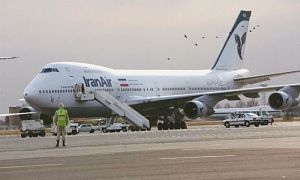Flat 304, NO 8, Takhti SQ, Fereshte, Valiasr, Tehran, Iran
+98 21-22233389
+98 21-26459281

 The 20th session of Iran-Pakistan Joint Economic Commission that took place 17-18 April 2017 in Tehran concluded with a memorandum of understanding on economic cooperation signed between the two sides. he Iranian side was chaired by Interior Minister Mr. Abdolreza Rahmani Fazli and the Pakistani side was headed by Minister for States and Frontier Regions Mr. Abdul Quadir Baloch. The session aimed at following up on the implementation of agreements reached during the 19th session held in Islamabad in December 2014, and to increase trade and commercial transactions up to US$ 5 billion per year. After signing an MoU on expansion of economic cooperation, Mr. Rahmani Fazli voiced satisfaction over reaching agreements in various fields of economy, trade, industry, energy, communications, and security issues. Recently, the State Bank of Pakistan (SBP) signed an agreement with the Central Bank of Iran (CBI) for banking and payment mechanisms cooperation. The mechanism will be used for payment of trade conducted via letter of credit (L/C).
The 20th session of Iran-Pakistan Joint Economic Commission that took place 17-18 April 2017 in Tehran concluded with a memorandum of understanding on economic cooperation signed between the two sides. he Iranian side was chaired by Interior Minister Mr. Abdolreza Rahmani Fazli and the Pakistani side was headed by Minister for States and Frontier Regions Mr. Abdul Quadir Baloch. The session aimed at following up on the implementation of agreements reached during the 19th session held in Islamabad in December 2014, and to increase trade and commercial transactions up to US$ 5 billion per year. After signing an MoU on expansion of economic cooperation, Mr. Rahmani Fazli voiced satisfaction over reaching agreements in various fields of economy, trade, industry, energy, communications, and security issues. Recently, the State Bank of Pakistan (SBP) signed an agreement with the Central Bank of Iran (CBI) for banking and payment mechanisms cooperation. The mechanism will be used for payment of trade conducted via letter of credit (L/C).
 Daily production in Iran’s South Pars gas field will reach 630 million cubic meters (mcm) by the end of current Iranian calendar year (20 March 2017- 20 March 2018) said Oil Minister Mr. Bijan Namdar Zanganeh on 17 April 2017. The minister said the production of gas in South Pars is one of the priorities of the Oil Ministry in the current year. On 16 April 2017, President Mr. Hassan Rouhani inaugurated five development phases of the field, namely 17-21, which will add 150 mcm to the field’s current daily gas output of about 570 mcm to push Iran’s gas extraction from the joint field up to equate that of Qatar. Some US 71 billion has been already invested for development of South Pars, of which US$ 19 billion has been secured from the internal sources of Oil Ministry and the rest US$ 52 billion from external sources such as National Development Fund (NDF), banks and issuance of securities, according to National Iranian Oil Company (NIOC) Managing Director Mr. Ali Kardor.
Daily production in Iran’s South Pars gas field will reach 630 million cubic meters (mcm) by the end of current Iranian calendar year (20 March 2017- 20 March 2018) said Oil Minister Mr. Bijan Namdar Zanganeh on 17 April 2017. The minister said the production of gas in South Pars is one of the priorities of the Oil Ministry in the current year. On 16 April 2017, President Mr. Hassan Rouhani inaugurated five development phases of the field, namely 17-21, which will add 150 mcm to the field’s current daily gas output of about 570 mcm to push Iran’s gas extraction from the joint field up to equate that of Qatar. Some US 71 billion has been already invested for development of South Pars, of which US$ 19 billion has been secured from the internal sources of Oil Ministry and the rest US$ 52 billion from external sources such as National Development Fund (NDF), banks and issuance of securities, according to National Iranian Oil Company (NIOC) Managing Director Mr. Ali Kardor.